University of Otago | Ōtākou Whakaihu Waka
Otago Medical School 150th Anniversary
Otago Medical School 150th Anniversary Celebration
Chairs and speakers:
Friday 30 May 2025
Ōtākou Whakaihu Waka. A place of many firsts
Chair: Professor Suzanne Pitama
Professor Pitama (Ngāti Kahungunu) is Dean of the Otago Medical School.
Suzanne has held many leadership roles at the University over the past 24 years, including the Dean and Head of Campus, Christchurch, Director of the Māori Indigenous Health Institute (MIHI), Associate Dean Māori at the University of Otago, Christchurch, and membership of the MBChB curriculum committee, where she chaired its Hauora Māori sub-committee.
Suzanne has been involved in Māori health research and health professional education for over 20 years. Her work has included the development of an Indigenous health model of health, which supports Indigenous and non-Indigenous health professionals signpost cultural competency and safety within their practice.
Suzanne has received a number of awards including the Prime Minister’s Supreme Award for tertiary teaching excellence and both the Indigenous Leadership Award and Lifetime award from the Leaders in Indigenous Medical Education (LIME).
Māori in Medicine - He Māmāru me te Moemoeā
Speaker: Professor Jo Baxter
Professor Jo Baxter (Ngāi Tahu, Ngāti Apa ki te Rā Tō) is a Public Health Medicine Physician and Group Manager for Health Workforce Delivery in Te Whatu Ora.
Jo was the first woman Dean of the Dunedin School of Medicine and held previous roles as Associate Dean Māori, Director of Otago’s Māori Health Workforce Development Unit, and Professor for Māori Health.
Jo is recognised for her work on Māori health and equity, Indigenous medical education and health workforce development.
150 years of staff and students at Otago Medical School
Speaker: Professor Emerita Dawn Elder
Dawn graduated from the Otago Medical School in 1980 and has postgraduate specialist qualifications in neonatal medicine and paediatric sleep medicine with research interests in those areas.
From 1995 to 2022 she was a joint clinical academic in the Department of Paediatrics and Child Health at the University of Otago, Wellington, Head of Department from 2013 to 2022 and Deputy Dean of the University of Otago, Wellington from 2019 to 2022.
Dawn is chair of the organising committee for the Otago Medical School 150th Anniversary Celebration.
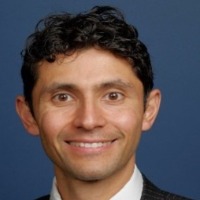
Pacific at Otago Medical School
Pacific at Otago Medical School
Speaker: Dr Xaviour Walker
Xaviour is a consultant geriatrician and internal medicine physician at Dunedin Hospital, and past Associate Dean Pacific, Health Sciences Division, University of Otago.
A graduate of Otago Medical School, he was a past president of the OUMSA and NZMSA. He trained in internal medicine and was chief resident in medicine at Mount Auburn Hospital, Harvard Medical School, preventive medicine and public health at Johns Hopkins Bloomberg School of Public Health, and geriatric medicine at University of California, Irvine.
He was the founder and inaugural chair of the Junior Doctors Network, World Medical Association, and is currently a board director of Pasifika Medical Association. He is a mentor and teacher to students and trainees and a researcher in Pacific health, health ageing and big data.
Ko tōku kainga waewae. My place of standing – Research
Chair: Professor Sunny Collings
Professor Sunny Collings is the Chief Executive of the Health Research Council of New Zealand (HRC), appointed in February 2020.
Sunny has more than 30 years of academic leadership, and clinical and health research experience. As well as being the Chief Executive of the Health Research Council of New Zealand, she is on the board of Te Hiringa Mahara, the New Zealand Mental Health and Wellbeing Commission.
A tradition of science research at Otago
Speaker: Professor John Reynolds
John Reynolds is a Professor of Neuroscience in the Department of Anatomy at the University of Otago. John graduated from Otago in 1994, practised medicine in Northland and then completed a PhD in Neuroscience at Otago in 2000.
He has received an international Brain Research Young Investigator Award, a National Tertiary Teaching Award and a Rutherford Discovery Fellowship from the Royal Society of New Zealand. John’s primary science focus has been understanding learning and movement generation processes in the basal ganglia and cerebral cortex, and applying neuroplasticity approaches to the treatment of neurological disorders.
He leads a multidisciplinary team currently developing a drug-delivery platform for the treatment of Parkinson’s disease, brain cancer and epilepsy, and novel stimulation approaches for enhancing the recovery from stroke.
The Otago Vascular Surgical Research Group: A brief overview
Speaker: Professor Greg Jones
Professor Greg Jones heads the Otago Vascular Research Group within the Department of Surgical Sciences, Dunedin School of Medicine.
Greg’s PhD was in the field of vascular pathobiology and his group has a strong focus on developing improved and equitable cardiovascular disease screening strategies. This includes investigating the pathophysiology, epidemiology and genetics of conditions such as arterial aneurysms, coronary artery disease, peripheral artery disease and varicose veins.
He has published over 150 peer-reviewed articles in journals including Nature Genetics, Nature, the New England Journal of Medicine, Circulation, Circulation Research and the British Journal of Surgery.
Developmental and epileptic encephalopathies: Big problems in little children
Speaker: Professor Lynette Sadleir
Professor Lynette Sadleir is a paediatric epileptologist working at the Department of Paediatrics and Child Health, University of Otago, Wellington. Her major research interests are epilepsy genetics, terminology, and epidemiology. She has been instrumental in the development of New Zealand guidelines for children with epilepsy and the provision of Paediatric Epilepsy Training Courses for paediatricians.
She is presently the chair of the New Zealand Paediatric Neurology Clinical Network. She has been recognised by the International League Against Epilepsy (ILAE) as a leader in the field, and chairs or is a member of multiple ILAE commissions and taskforces (SNOMED Taskforce, Climate Change Task Force, Big Data Commission).
All hands on deck: Transdisciplinary research approaches to infectious diseases
Speaker: Associate Professor Htin Lin Aung
Associate Professor Htin Lin Aung is a Rutherford Discovery Fellow at the Department of Microbiology and Immunology, Associate Dean Pacific for the School of Biomedical Sciences and Co-Deputy Director of Otago Global Health Institute. He is also a councillor at the Royal Society Te Apārangi Council. Associate Professor Aung leads a transdisciplinary research programme that integrates biomedical, public health and social science disciplines and translates research findings into tangible health benefits.
Beating bowel disease
Speaker: Professor Tim Eglinton
Professor Tim Eglinton is a consultant colorectal surgeon and Head of the Department of Surgery and Critical Care at the University of Otago, Christchurch.
Tim undertakes clinical and translational research in bowel diseases and surgical techniques, including artificial intelligence applications. He is the immediate past chair of the ANZ Training Board in Colon and Rectal Surgery.

Achieving the best stroke care for everyone
Speaker: Professor Anna Ranta
Professor Anna Ranta is the Head of the Department of Medicine at the University of Otago, Wellington, and an academic stroke neurologist. Her research focusses on optimising stroke care treatment access and outcomes with a strong focus on health equity.
She has led multiple large-scale research and service improvement programmes across Aotearoa and internationally, and serves on several international professional and editorial boards, and as Medical Director of the Stroke Foundation.

Genomics Aotearoa and Otago
Speaker: Professor Peter Dearden
Peter Dearden is a Distinguished Professor in the Biochemistry Department at the University of Otago and Co-Director of Genomics Aotearoa. He works in genetics of all kinds, but mainly developmental genetics in insects.

Ara Wahakapiki: A pathway to mauri ora for whānau
Speaker: Associate Professor Justine Camp
Associate Professor Justine Camp (Kāi Tahu, Kāti Mamoe, Waitaha) is the inaugural Associate Pro-Vice-Chancellor Māori for the University of Otago Health Sciences Division and Co-Director of the Edgar Diabetes and Obesity Research Centre. She is a leading advocate for Tiriti-led systemic change, championing Māori health equity, Indigenous research excellence, and culturally responsive health policies.
With a career dedicated to fulfilling iwi, hapū, hāpori, and whānau aspirations, Justine has played a pivotal role in embedding kaupapa Māori frameworks within health research, education, and governance. She has been instrumental in developing Te Ara Whakapiki - a strategic pathway that integrates tikanga Māori into university structures, fostering Māori staff and student success.
Her research spans intergenerational trauma, Indigenous models of care, and the role of sleep in lifelong health outcomes. As an iwi representative, she has influenced the design of the new Dunedin Hospital to ensure Māori perspectives shape service delivery and patient care. She has also led groundbreaking initiatives that apply mātauranga Māori to address diabetes, obesity, and cardiovascular health inequities.
A firm believer in the power of co-design, she works closely with Māori communities to develop interventions that are culturally resonant and effective. Through her leadership, she continues to drive transformational change, ensuring Māori health and wellbeing are prioritized within academia, policy and healthcare systems.

University of Otago leading the quest for improving the lives of people with diabetes
Speaker: Associate Professor Martin de Bock
Associate Professor Martin de Bock is a paediatric endocrinologist in the Department of Paediatrics at the University of Otago, Christchurch. He trained in paediatric endocrinology in Auckland, where he gained his PhD. He then spent several years in Perth, Western Australia, where he developed his primary research focus on using technology to improve the lives of people with diabetes, and in particular using automated insulin delivery.
His international service roles include contributions to consensus statements and diabetes management guidelines, and he also serves on the diabetes committee of the Australia New Zealand Paediatric Endocrine Society. He has over 100 international peer-reviewed publications, including in lead journals such as the New England Journal of Medicine.

Uncovering the neurohormonal control of parenting
Uncovering the neurohormonal control of parenting
Speaker: Dr Rosie Brown
Dr Rosie Brown is a Rutherford Discovery Fellow and Senior Lecturer in the Department of Physiology and Centre for Neuroendocrinology at the University of Otago.
Her research group focuses on understanding how hormones influence parenting behaviour. Specifically, they study how hormones during pregnancy and after birth help prepare mothers and fathers to care for their newborns. Using advanced neuroscience tools, they explore how hormonal changes affect parents’ moods and behaviours.
Their work has identified that the hormone prolactin, acts in mothers' brains during pregnancy as well as in fathers to facilitate caregiving behaviour in new parents. They seek to unravel the complex interplay of hormones and neuronal pathways in regulating a wide range of behaviours. This research contributes to better understanding of the biological basis of parenting and its connection to mental health.
Centring Indigenous worldviews in public health policy: The case for tobacco resistance
Speaker: Associate Professor Andrew Waa
Associate Professor Waa (Ngāti Hine/Ngāpuhi) is based at the Eru Pōmare Māori Health Research Centre, University of Otago, Wellington. He has worked as a public servant, consultant and academic. He currently teaches in Hauora Māori and Public Health while his research interests include Indigenous health and wellbeing, public health and social sciences, with a particular focus in tobacco control. He is a co-principle investigator for the Whakahā o te Pā Harakeke and Te Tupu o te Harakeke research programmes as well as a co-principle investigator for the Ka Hao te Rangatahi research project. Andrew is a Co-Director for ASPIRE Aotearoa, Deputy Editor for Nicotine and Tobacco Research, a member of Te Rōpū Tupeka Kore, a member of Hapai Te Hauora’s National Tobacco Control Advocacy Service Advisory group and a member of the Society for Research into Nicotine and Tobacco’s Indigenous Circle.
In 2024 Andrew received the Dame Tariana Turia Award for his contributions to tobacco resistance.
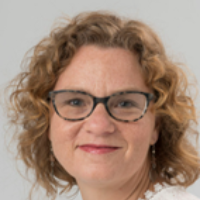
Policy, system and service design influence on healthcare inequities for people with end-of-life COPD
Speaker: Dr Amanda Landers
Dr Landers is a Palliative Care physician for Hospice Southland, covering the Gore and Queenstown areas. She is also the Head of Department, Medicine,at the University of Otago, Christchurch.
Amanda was involved in the development of the national undergraduate Palliative and End-of-life Care module and is the current local convenor. Her research interests include pancreatic cancer and malabsorption, lymphoedema, COPD models of care, and medical education.
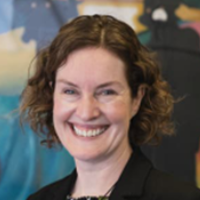
How clever statistics can help us when clinical trials can’t
Speaker: Professor Suetonia Green
Professor Green is a graduate of the Otago Medical School from 1995 and is now the Dean of the Dunedin School of Medicine 30 years on. Suetonia is a Distinguished Professor at the University of Otago.
She trained as a kidney specialist and her research has involved finding the best available evidence for the care of people who have kidney conditions. Kidney disease is often poorly understood and affects one in eight adults. Clinical care of kidney conditions often involves treatments that do not have a strong basis in clinical trials, but new techniques can really help us to make the best use of the clinical trials that we do have. Suetonia will give examples of how research is changing the care of people with kidney conditions using low-cost methods, large teams and new statistics.
Saturday 31st May 2025
Ko tōku kainga waewae. My place of standing. What makes the "School" in Medical School?
Chair: Associate Professor Megan Gibbons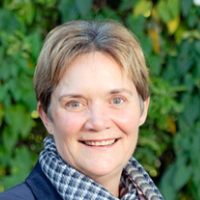
Associate Professor Megan Gibbons (Ngāpuhi) was appointed Pro-Vice-Chancellor of the Division of Health Sciences on 29 April 2024.
As the head of the largest academic division of Aotearoa New Zealand’s oldest university, Megan says she has a passion for both education and health, appreciating that this role allows her to bring both together.
The Division of Health Sciences incorporates the Faculty of Dentistry, Otago Medical School (including the Dunedin School of Medicine Christchurch and Wellington campuses), School of Pharmacy, School of Physiotherapy, School of Biomedical Sciences, and the divisional office.
Megan works to ensure all these areas are future-focussed, Te Tiriti-led, and doing their part to improve the processes, reputation and ranking of the University.
As a member of the Interprofessional Learning Centre working group, she has spent many years working closely with kaimahi, even prior to joining the University.
She is strongly committed to Te Tiriti o Waitangi and has established networks with iwi, local and central government, businesses and many community groups.
Prior to this role, she was the Deputy Chief Executive at Te Pūkenga, responsible for research structure and strategy, including developing the connection between rangahau Māori and research. She has also been the Chief Executive of Otago Polytechnic.
Medical education at Otago: Past, present and future
Speaker: Professor Tim Wilkinson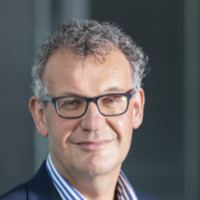
Professor Wilkinson was acting Dean for the Otago Medical school from 2022 to 2025, and the MBChB programme director from 2013 to 2021. He is currently professor in medicine and medical education at the University of Otago and a consultant physician in geriatric medicine.
His research interests are the assessment of clinical competence and performance, workplace learning, selection into medical school, career paths, and professionalism. In 2002 he was an inaugural winner of the Minister of Education / NZQA Tertiary Teaching Excellence Award (for sustained excellence in tertiary teaching).
In 2016 he was awarded the Australian and New Zealand Association for Health Professional Educators highest award for outstanding achievement in the field of health professional education in Australia, New Zealand and internationally. He holds editorship roles on three medical education journals.
In his spare time he is a keen amateur double bass player in local orchestras and a jazz band. He founded and helps organise the NZ Doctors Orchestra.
Medical education as a vehicle to demonstrate social accountability
Speaker: Professor Suzanne Pitama
Professor Pitama (Ngāti Kahungunu) is Dean of the Otago Medical School.
Suzanne has held many leadership roles at the university over the past 24 years, including the Dean and Head of Campus, Christchurch, Director of the Māori Indigenous Health Institute (MIHI), Associate Dean Māori at the University of Otago, Christchurch, and membership of the MBChB curriculum committee, where she chaired its Hauora Māori sub-committee.
Suzanne has been involved in Māori health research and health professional education for over 20 years. Her work has included the development of an Indigenous health model of health, which supports Indigenous and non-Indigenous health professionals signpost cultural competency and safety within their practice.
Suzanne has received a number of awards including the Prime Minister’s Supreme Award for tertiary teaching excellence and both the Indigenous Leadership Award and Lifetime award from the Leaders in Indigenous Medical Education (LIME).
Reflections on general/professional staff contributions to the Otago Medical School over the past 50 years
Speaker: Bruce Smith
Bruce Smith joined Otago Medical School in February 1974 as a trainee medical technician in the Department of Medicine. He worked primarily with cardiologists undertaking cardiac catheterisation, ECGs, phonocardiograms, echocardiograms, stress testing and data collection projects for research purposes and in conjunction with Dunedin Hospital patient services.
After completing his technical qualifications, he became the senior technician in the department of Medicine and subsequently Senior Technical Officer (department manager).
In 1996, after completing further qualifications in Business Studies, and at the invitation of his Head of Department, Professor John Campbell, who had become the Dean of OMS, Bruce joined the Faculty Office as Secretary to the Faculty of Medicine, a role later named Manager Faculty of Medicine. The faculty name subsequently changed to Otago Medical School. He reported directly to six deans over this time.
Bruce retired in December 2020 after 25 years in the Faculty/OMS Office and the previous 22 in the Department of Medicine - a 47-year association with the Otago Medical School.
Clinical leadership: Making it mean something
Speaker: Richard Thomson, The Healthcare Otago Charitable Trust
Richard Thomson trained as a clinical psychologist and worked initially as a lecturer in the Department of Psychological Medicine at the Otago Medical School.
His involvement in environmental affairs led to him resigning his position to work as a co-ordinator of the Save Aramoana Campaign (working to prevent the building of an Aluminium Smelter at Aramoana on a nationally significant salt marsh and directly across from the world's only mainland albatross colony). Seeking a way to fund the rent on a headquarters for the Campaign, his partner and he set up a small gift and craft store run by volunteers. That eventually morphed into the national chain of 22 stores trading as acquisitions which has been his day job now for 40 years.
However, he has maintained a very active involvement in health as, initially, a member of the Otago Area Health Board and then as a member of the transitional Otago DHB and then Chair of the DHB for seven years. He was a board member of the Southern DHB and then, when the board was sacked by the then Health Minister, found himself reappointed as Deputy Commissioner.
He is currently the Chair of Central Otago health Services which runs a 24 bed hospital and related services at Clyde. He has also had a long involvement in disability, setting up the Hawksbury Trust on the closure of Cherry Farm Hospital, which provides 24/7 residential support to over 100 intellectually disabled residents in Dunedin and Christchurch. He remains on the Board of Hawksbury having recently stepped down as Chair.
Ko tōku kainga waewae. My place of standing. The University as critic and conscience of society in regard to health
Chair: Professor Sir David Skegg
Professor Skegg is a graduate of the Otago Medical School, where he has spent most of his career. He was a Rhodes scholar and then lecturer in epidemiology at the University of Oxford, before returning to the Chair of Preventive and Social Medicine at Otago.
From 2004 to 2011, he was the Vice-Chancellor of the University. He has been an adviser to the World Health Organization over many years. His recent book The Health of the People described how commercial and political pressures impacted the Public Health Commission, which he chaired.
Building coalitions for policy advocacy
Speaker: Professor Boyd Swinburn
Professor Swinburn is a public health physician and Professor of Population Nutrition and Global Health at the University of Auckland. He is also co-chair of Health Coalition Aotearoa.
He has been a long-standing advocate for public health policies in New Zealand and internationally, especially in relation to reducing the obesogenic food environment. He has co-founded eight health advocacy organisations in New Zealand and Australia, and co-chaired the International Obesity Taskforce and the Policy and Prevention Section of the World Obesity Federation.
Are we communicating with facts on community water fluoridation?
Speaker: Professor Jonathan Broadbent
Professor Broadbent is a dentist and Professor in Dental Epidemiology and Public Health at the University of Otago. He has worked for a number of years with the Dunedin Multidisciplinary Health and Development Study, and has interests in the epidemiology of oral conditions throughout the life course.
He has received several awards for research, including the Liley Medal from the New Zealand Health Research Council and a Distinguished Scientist Award from the International Association for Dental Research.
Health, climate change and transport policy: Driving ourselves to death
Speaker: Associate Professor Caroline Shaw
Associate Professor Shaw is an epidemiologist and public health medicine specialist in the Department of Public Health, University of Otago, Wellington. Her research focuses on how low carbon transport systems can improve physical and mental health and equity.
I never thought I’d end up in court
Speaker: Professor Doug Sellman
Professor Sellman is a psychiatrist and addiction medicine specialist who was Director of the National Addiction Centre (NAC), University of Otago, Christchurch from 1996-2017, promoted to a Chair in Psychological Medicine in 2005, and in 2009 was key in the development of Alcohol Action NZ, a medically-led advocacy group for effective alcohol law reform. He retired from the University in 2022.
Communicating research, evidence and expert commentary to improve policy and public awareness
Speaker: Professor Michael Baker
Professor Baker is a public health physician, epidemiologist, and researcher in the Department of Public Health, University of Otago, Wellington.
Michael has a strong interest in science communication and evidence translation. He established and directs the Public Health Communications Centre Aotearoa, which is dedicated to increasing the reach and impact of public health research. It publishes one-to-two briefings per week that aim to make such information more accessible to the public and decision-makers.
Michael gained huge personal experience of science communication during the COVID-19 pandemic. He took a leading role in shaping New Zealand’s response, particularly the elimination strategy. During that time he co-authored more than 50 peer-reviewed papers on COVID-19, over 100 science commentaries and OpEds, and gave more than 7,000 media interviews (11 per cent of total University of Otago media citations for the five years 2020 to 2024).